'Dragon's Den' for migrant entrepreneurs
- Published
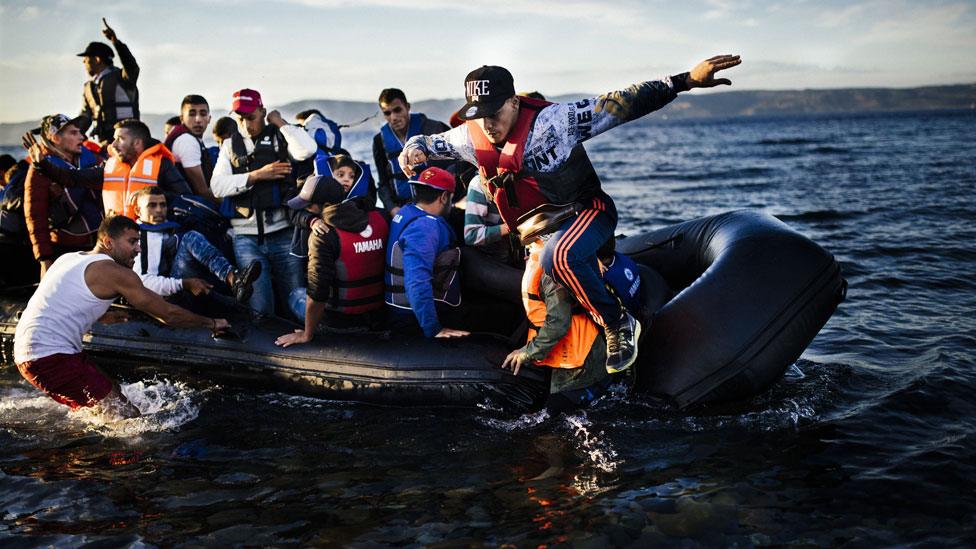
New arrivals in Europe are being encouraged to use their skills to become entrepreneurs
An initiative is trying to turn Middle Eastern migrants in Europe into technology entrepreneurs.
In the style of the BBC's international television series looking for new ideas and entrepreneurs, this is a kind of "Dragon's Den for migrants".
After their pitches and interviews, the challenge has been won by five tech-savvy young people originally from Syria and Yemen who are now in the Netherlands.
These young migrants say that surviving experiences such as the sea crossing into Europe has given them the type of risk-taking and nothing-to-lose mentality needed in business.
The first successful entrants will take a six-month technology qualification before receiving 200,000 euros to launch and run Ngage Virtual Reality, a company that creates virtual reality content for education.
The search for entrepreneurs, which will run each year, wants to tap into the energy and business ambitions of these new arrivals in Europe.
The initiative has been devised by an organisation called R Ventures Capital. The corporate-sounding name is softened when you learn that the R stands for refugee.
R Ventures Capital was founded Shantanu Prakash, an education technology entrepreneur from India, and social entrepreneur Archish Mittal.
'Job creators'
Mr Mittal says their main aim is to change perceptions of migrants to Europe from "job stealers" to "job creators".
"If the business is successful, it will generate many jobs for local people in the Netherlands," he says.
"We hope this changes the narrative around migrants and refugees and reminds people that they have skills which they want to use to help their new countries."
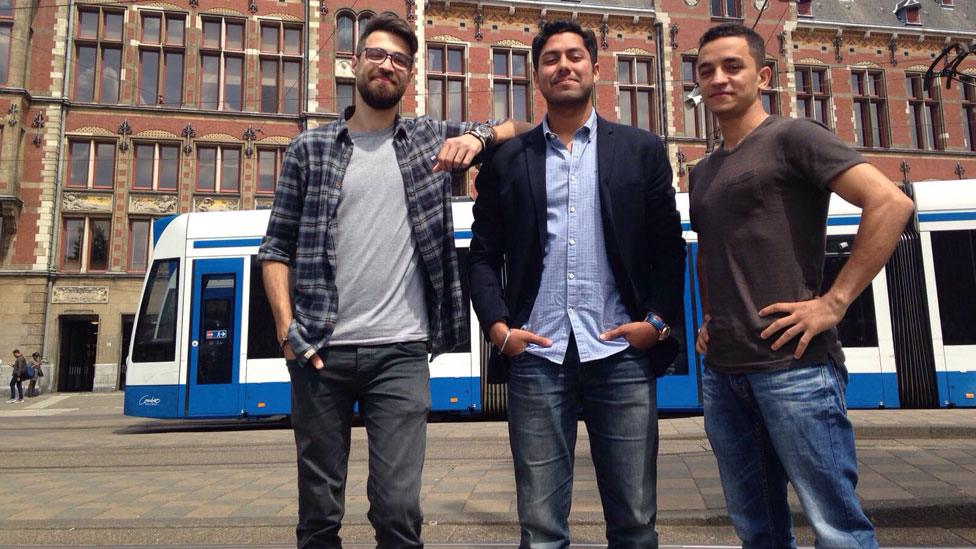
Mohammad Alkhateeb from Syria, founder Archish Mittal and Hasan Shahoud from Syria
Mr Mittal is confident in the people he selected to run the new company because he thinks their difficult journeys to Europe have given them "incredible drive and resilience".
One of those is Mohammad Alkhateeb, a 26-year-old graduate from the University of Damascus who left Syria in 2013.
Mr Alkhateeb arrived in Europe after a three-day boat trip from Libya. Before that, he spent three weeks in Libya crammed alongside 40 other migrants in a smuggler's house.
"The journey has changed me more than I could imagine," he says. "Now I know that I have nothing to lose, I just need to go for it and to jump into this project."
Mr Mittal says Mr Alkhateeb's hunger to succeed was evident at his interview.
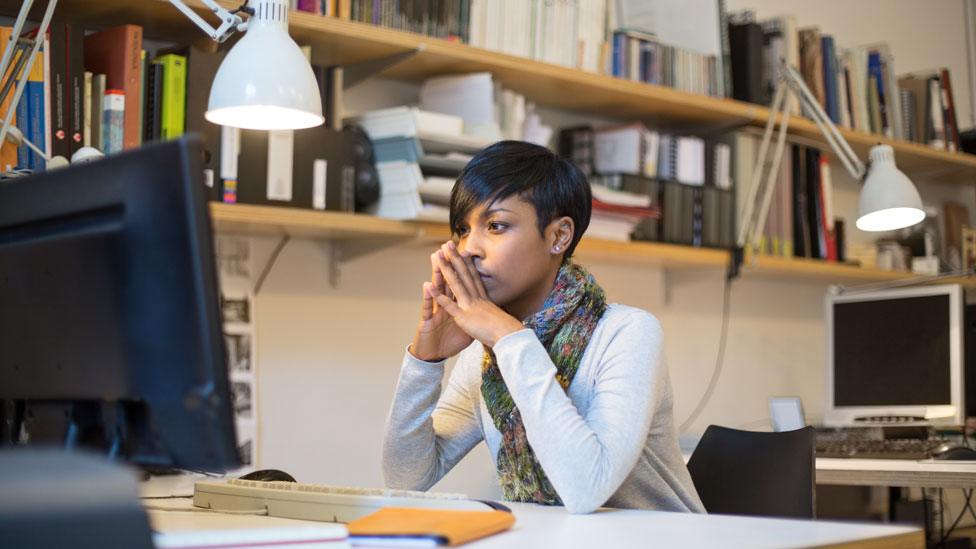
The project wants to create a new generation of entrepreneurs and job creators
"Mohammad has adapted to changing and very difficult circumstances, and this resilience and will to survive is one of the most important qualities an entrepreneur needs," he says.
"In business, you can have days when you are bankrupt, or circumstances mean you have to completely change your business idea, and you have no choice but to adapt.
"Mohammad has mastered this skill without needing to sign up for a course or go to business school."
'Survival skills'
Mr Alkhateeb says these "survival skills" are widely shared among other migrants.
He has no shortage of role models of migrants who thrived in their new country - just look at Sergey Brin, Madeleine Albright and Albert Einstein.

More from Global education
Ideas for the Global education series? Get in touch.

Many tech founders and CEOs are migrants or the children of migrants.
Sergey Brin of Google, Elon Musk of Tesla, Amazon's Jeff Bezos, Yahoo's Jerry Yang and eBay's Pierre Omidyar all had roots and connections outside of the US.
The biological father of Apple's Steve Jobs was born in Homs, Syria.
Alexis Ohanian, the son of an undocumented German immigrant and founder of Reddit, said that America's traditional openness to migrants has been its "unfair advantage".
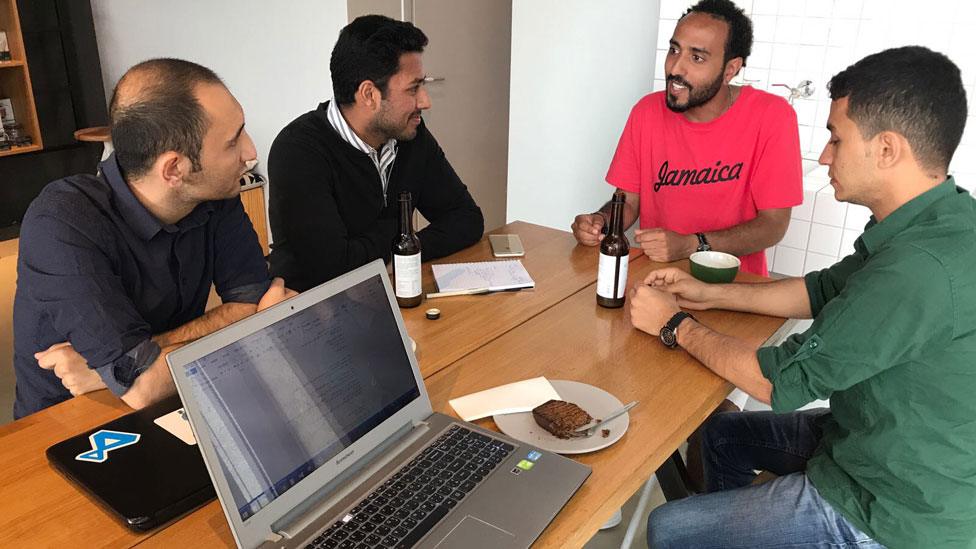
Many of the qualifications held by migrants are not being used in their jobs in the Netherlands
Mr Mittal says Europe risks wasting its own advantage with the recent influx of migrants.
He says many refugees bring skills which they cannot use in their new country.
Doctor washing dishes
Mr Alkateeb says that his degree in business administration from the University of Damascus is worth "zero" in the eyes of prospective employers in Europe.
"People are not working in their fields," he says.
"I know a doctor from Syria who can only find work washing dishes in a restaurant. He offered to treat people for free but this was turned down by his municipality."
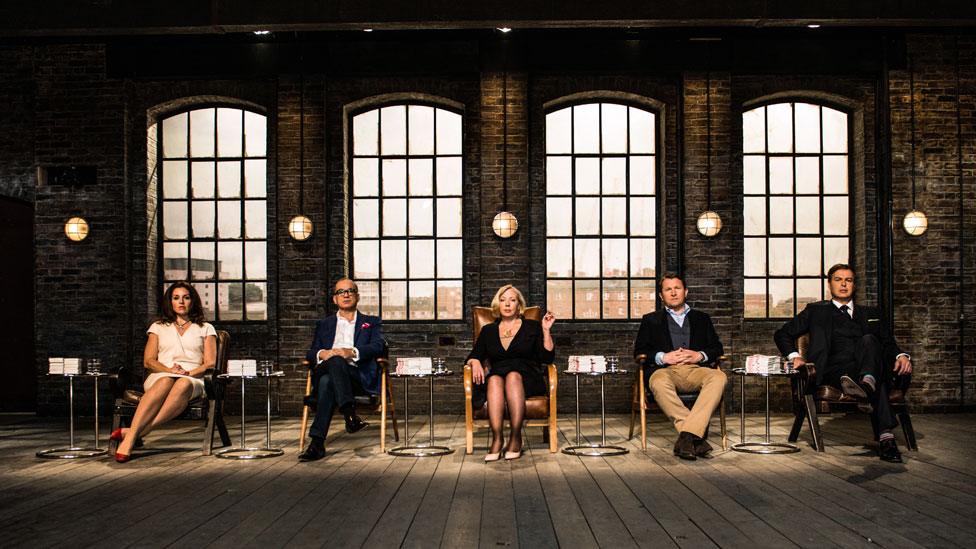
For more than a decade, the dragons have been looking for business ideas
Martin Wyss, director of the International Organisation for Migration (IOM) in the Netherlands, says R Ventures Capital is "a bold, daring and much needed experiment".
"The public debate in the Netherlands on migrants integrating into the labour market has traditionally been quite black and white - some people are very welcoming, while others see newcomers as unwelcome competition in the labour market," he says.
"Job creation is still one of the main issues at the moment, so migrants who themselves are creating jobs are the best way to promote tolerance and acceptance of migrants."
So the IOM has worked with migrants, governmental and non-governmental partners, and employers across Europe to find how newcomers' existing qualifications and skills can be better validated in their new countries. This project is called Skills2Work.
Within 10 years, R Ventures Capital aims to have founded multiple migrant-led companies across Europe, employing many Europeans.
Despite their optimism, the failure rate of venture capital-backed start-ups around the world range from 75% to 95%.
So what if this business fails?
"Even if we fail, the entrepreneurs will have gained a top-notch qualification from our partners Udacity, which will make them highly valuable in the job market in Europe," says Mr Mittal.
"They will have gained useful experience of starting a business and new networks. Professors and industry executives have agreed to visit the office in Amsterdam and mentor the team."
But most of all, he hopes to change some people's perceptions of migrants in Europe.